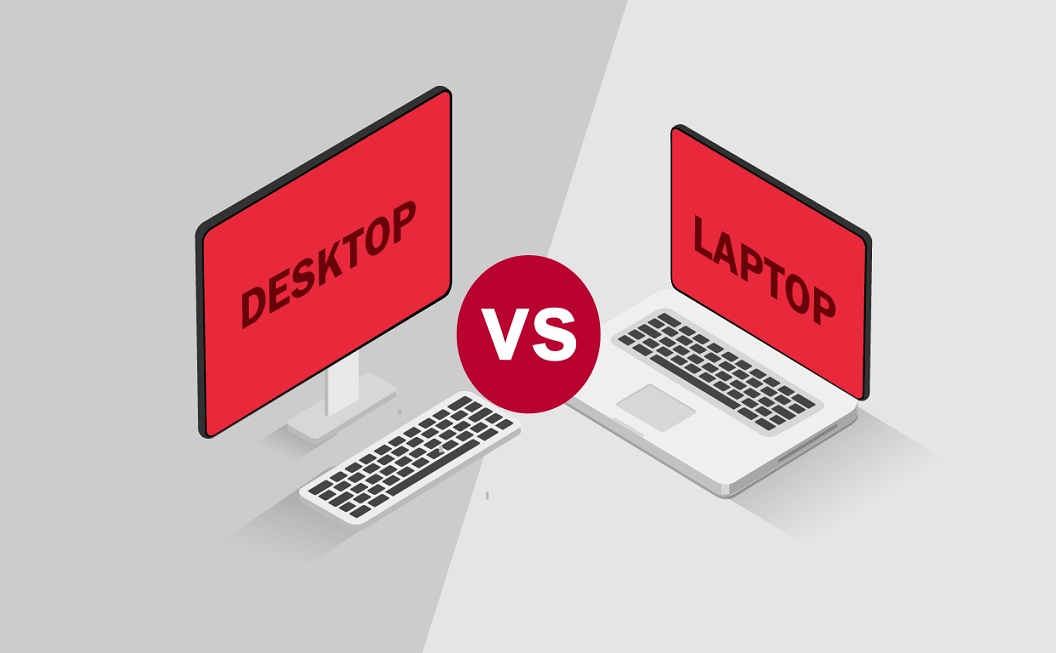The pandemic has meant millions of people have lost their jobs around the country. But amid the layoffs and company closures, applications for new businesses have also risen — specifically by 40% within just one year. If you’re part of this statistic, then you know that launching your business also means being your own boss. As such, you need to be able to equip yourself with the proper tools to handle your business as efficiently and effectively as possible. Whether you’re a freelance writer or running your own startup, you’ll need a computer to do the job. But what’s better: a desktop or a laptop? To help you decide, we’ve rounded up a few pros and cons.
Table of Contents
Getting a Desktop
PROS
Great Work Capability
Desktops have a larger body. This allows you to add in more RAM and storage, plus a more powerful CPU and GPU like the AMD Ryzen 5 3600X and Nvidia GeForce RTX 3060 Ti. For those who perform heavy tasks like video rendering and 3D modeling, these upgrades will help your desktop keep up easily — even with multiple tabs open for research. Being directly wired to the internet gives you a consistent high-speed connection as well.
Easier to Repair and Maintain
Hardware ages and new software becomes more demanding, eventually slowing down a computer’s performance and impacting productivity. Luckily, a quick fix is to buy a new stick of RAM and simply plug it in. Replacing a CPU and installing a GPU isn’t as simple, but a quick trip to your local PC repair shop will do the trick.
CONS
Not portable
Aside from being bulky, desktops are directly wired to the internet with an Ethernet cable and plugged into an electrical outlet. As it is a permanent workstation you will need to buy an additional laptop if you want to work on the move. You should buy a desktop if you only plan to work in one place or you need it for a specific function.
Needs More Electricity
Since it is plugged in the whole time, you’ll be using more electricity compared to a laptop. Another concern is desktops won’t stay powered for long, in the event that you run into electrical problems.
Getting a Laptop
PROS
Lightweight and Portable
If you like working on the couch or have to attend meetings in different locations then you will need a laptop. Despite their compact sizes, developments in rigid-flex PCBs means that these devices can be packed with powerful features — minus the bulk of standard desktops. You may be running your business from home, but it doesn’t mean you’re stuck in one place all the time.
Easier to Buy and Use
With a laptop, you just choose a device with the right specs for you and you can use it immediately. A PC takes longer to set up as you will need to have a dedicated space to put it. You can also easily pick up or replace a laptop while on the move or if traveling in another country.
CONS
Not Easily Upgradeable
When a laptop starts to lag, you’ll likely have to invest in an entirely new device, even if it’s just a few parts that are acting up. Most laptops’ hardware, like the processor and RAM, is permanently stuck to the motherboard. As such, you can’t add memory or change the CPU. Some models like the Apple MacBook Pro do have space for some upgrades, but once that’s filled, you’ll definitely need to shell out for a new laptop.
Not easily An Ergonomic Setup
As we said, laptops are made to be compact. It’s not always easy to work ergonomically — with the monitor at eye level, elbows at a 90-degree angle, and a comfortable position for your wrists. In order to have an ergonomic setup, you may need to purchase accessories that are separate from the ones on your laptop.
So should you get a desktop or laptop? If you don’t mind staying in one place for the sake of a powerful device, a desktop is for you. But if you value portability and an easy setup, a laptop can give you that. In the end, it depends on your budget, preferences, and needs.
